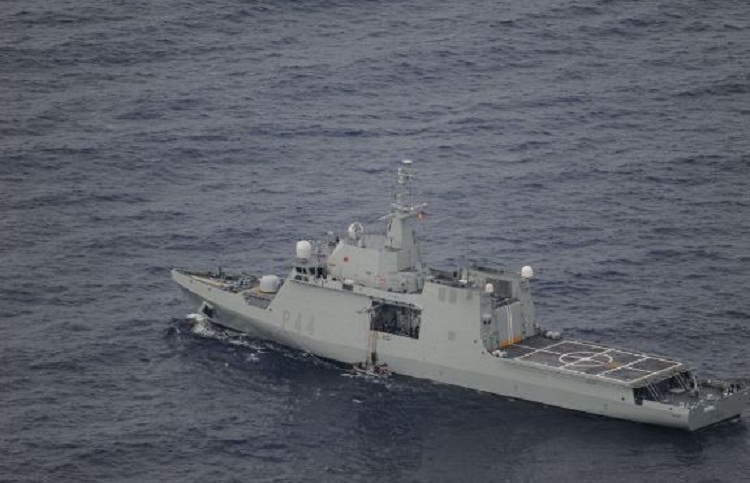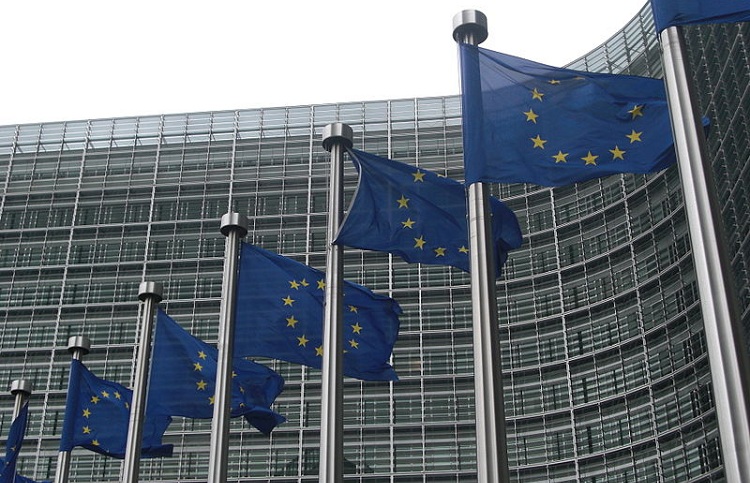The Diplomat
The British Government maintains its high rate of “diplomatic complaints” about the entry of Spanish ships and aircraft in the territorial waters and airspace whose jurisdiction London claims in the vicinity of Gibraltar and whose sovereignty is claimed by Spain under the Treaty of Utrecht of 1713.
This was stated by the Government in response to a parliamentary question from MP Jon Iñarritu (Bildu) on the protests lodged by the United Kingdom in relation to “military or police incursions in the land, air or maritime space claimed by Gibraltar”.
In its response, dated March 23 and collected by the newspaper Vox Pópuli, the Government said that “the position of Spain regarding the areas ceded and not ceded to Britain by the Treaty of Utrecht remains unchanged since the date of the Treaty” and, therefore, Spain “does not recognize the United Kingdom other rights and situations relating to the areas of Gibraltar that are not covered by Article X of the Treaty of Utrecht of 1713”, which “do not include the airspace overlying the colony, or any territorial sea or the isthmus that connects the Rock with the peninsula.
Therefore, it continues, the Government “has no doubt about the limits of the Spanish territory” and, therefore, “it is not possible at any time to speak of incursions“. “Spanish ships and aircraft carry out their duties in Spanish waters and in Spanish territorial airspace, respectively, without this having been adduced until very recently as a cause of alleged incursions“, it continued. The United Kingdom, according to the Government, refers to these facts as incursions or, at least, incidents“, whereas, for Spain, in most cases, they are simple “incidences” that arise when “exercising its competences over maritime spaces that are under Spanish sovereignty”.
Likewise, the Government recalls that “the diplomatic dialogue and the formulation of protests is carried out between Spain and the United Kingdom, which is the administering power of the territory of Gibraltar in accordance with the doctrine of the United Nations” and, for this reason “it is the United Kingdom, in its capacity as administering power, and not the territory of Gibraltar, as assumed in the text of the question, who formulates these claims of territorial sovereignty over these spaces”.
According to the Government’s reply, up to February 16, the date of registration of the parliamentary question, the Ministry of Foreign Affairs “has received four British notes verbales of protest, relating to 69 incidents”. The figures correspond to the month and a half after the signing of the New Year’s Eve Agreement on Gibraltar, which allows the British colony to remain in the Schengen zone despite the exit of the United Kingdom from the EU.
The parliamentary response includes a list of the verbal notes recorded by the Government in relation to the nearly 4,550 incidents that have occurred since 2010. Specifically, the Ministry recorded in 2020 the entry of 34 British notes verbales of protest relating to a total of 598 incidences, including 535 protests about the presence of Spanish State vessels in the waters adjacent to the Rock of Gibraltar and 63 protests about the presence of Spanish State aircraft in the airspace overlying the Rock of Gibraltar.
Also, in 2019, 46 notes verbales relating to 666 incidents were received; in 2018, 43 notes verbales relating to 670 incidents; in 2017, 47 notes verbales relating to 590 incidents; in 2016, 51 notes verbales relating to 498 incidents; in 2015, 53 notes verbales relating to 456 incidents; in 2014, 76 notes verbales relating to 418 incidents; in 2013, 42 notes verbales relating to 457 incidents; in 2012, 25 notes verbales relating to 170 incidents; in 2011, seven notes verbales relating to nine incidents; and in 2010, eight notes verbales relating to 17 incidents.






